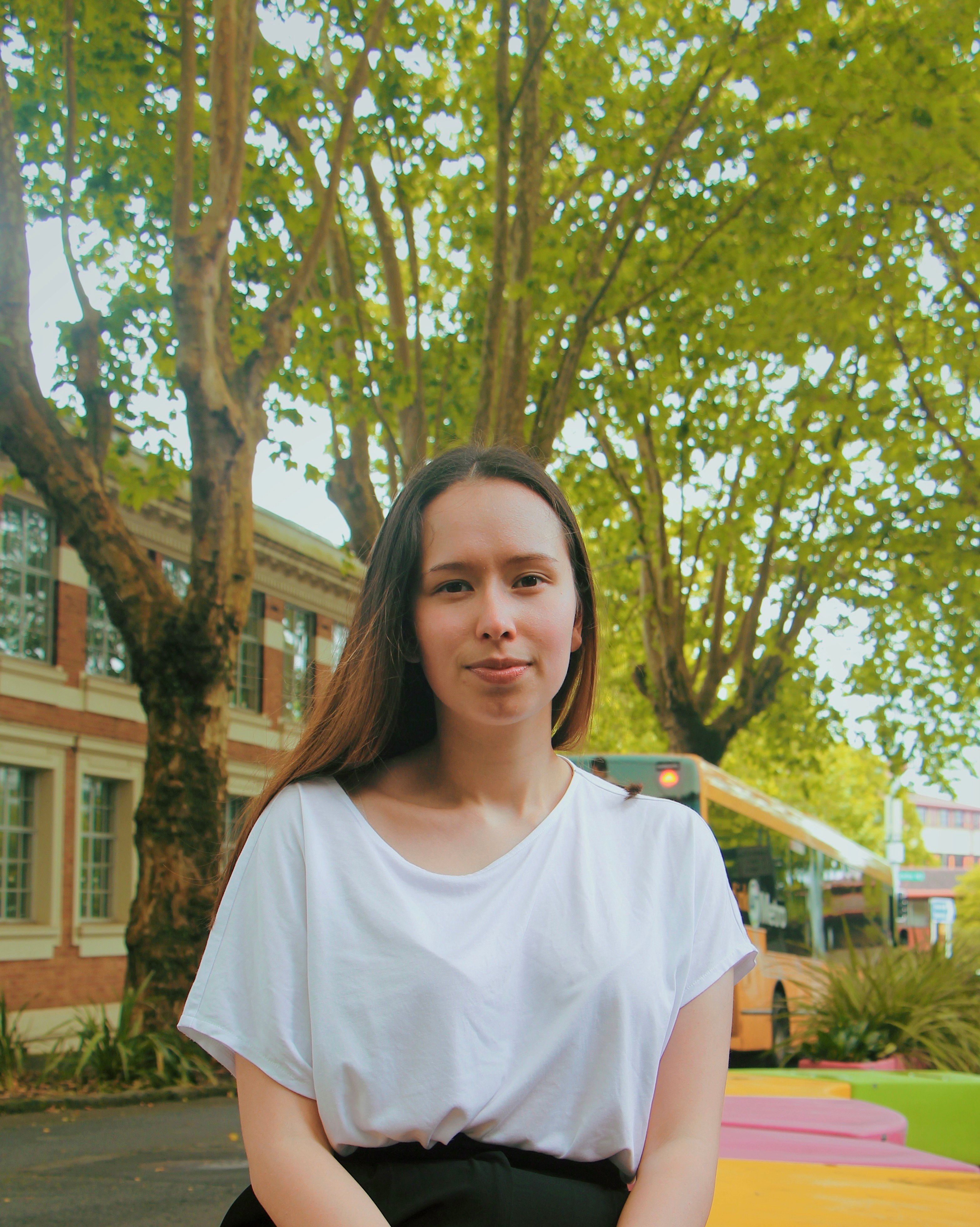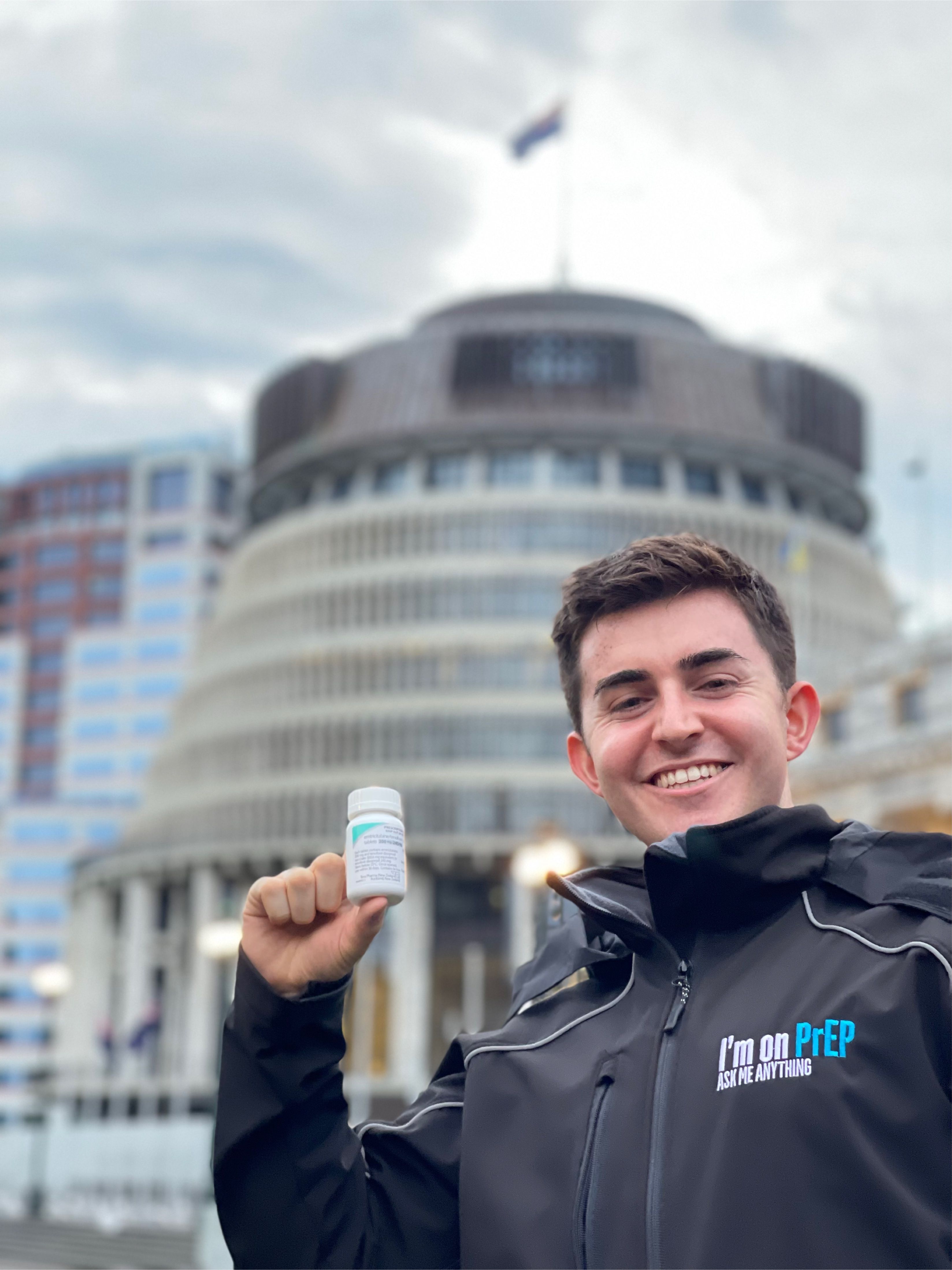Meet the rangatahi championing rainbow and Pasifika rights

The winners of Amnesty International’s Gary Ware Legacy Award were announced on 11 December as a celebration of the young people standing up for human rights.
The Gary Ware Legacy Award is a funding programme from Amnesty International Aotearoa New Zealand, designed to empower and equip young people with a passion for protecting and promoting human rights. Launched in 2020, the award is made possible by the generous support of the Ware family, facilitated by the Acorn Foundation, who provide up to $4000 each year.
Entries were received from rangatahi across the motu, with a range of incredible ideas and initiatives. Two young people have been selected as this year’s winners, which was announced at a special celebration on Sunday 11 December.

Katja Phutaraksa Neef
Katja Phutaraksa Neef, a political artist and master’s student, was selected as one of this year’s winners for her vision to raise awareness of the displacement of Banabans by phosphate mining in the 1900's. Katja’s co-designed and co-led project will create a virtual exhibition and interactive online platform to celebrate Banaban culture, share Banaban stories, and raise awareness of the human rights violations faced by Banaban communities for generations.
“To this day, the impacts of displacement are felt by Banaban communities on Rabi Island and in Auckland who have lost their land, their language, their culture - and who cannot be forgotten. For too long, this story has been a little-known blood stain on New Zealand’s history”, says Neef.
The research student and UNESCO youth leader visited Rabi Island in Fiji, where she met with Banaban elders, women, and young people to record stories, photographs, songs, and dances related to what it means to be Banaban from their perspective.
“We were granted permission by the elders to share their stories on the condition that we share them with the world. Receiving the Gary Ware Legacy Award will turn this vision into a reality.”

Josh McCormack
Josh McCormack was selected as the second winner to develop his project Sex Outside the City, a new kaupapa that aims to improve health outcomes for LGBTQIA+ and takatāpui people in rural-regional Aotearoa.
Having grown up in rural Taranaki, the final-year Auckland University medical student knows the challenges of accessing safe and affirming LGBTQIA+ healthcare all too well.
“Growing up LGBTQIA+ or takatāpui in regional-rural Aotearoa can be a significant challenge. Conversations about queerness can be highly-stigmatised, particularly around queer health needs,” says the 22-year-old.
“Receiving the Gary Ware Legacy Award means the world. To be celebrated by Amnesty International for work I didn’t feel I could talk about growing up is a powerful signal that the tables are turning for queer people all over regional-rural Aotearoa.”
Amnesty International Youth Campaigner Sabrina Manū says the calibre of this year’s applications was exceptionally high.
"We are thrilled to award two rangatahi with such well-deserved funding. Katja’s use of art in activism is particularly powerful because of the emotions it evokes through such real and raw storytelling. Likewise, Josh’s professionalism is outstanding, and his deep knowledge and lived experience are evident through his incredible thoughtfulness and preparation. They both know their communities well and have envisioned a path towards tangible change in simple yet powerful ways," says Manū.
The passion that young people have for building a better future was evident in the numerous proposals received by Amnesty International this year.
“We share our immense gratitude to the Ware whānau for contributing to the fruition of our young changemakers’ visions,” she says.
“We recognise the heart behind their generosity as a multigenerational commitment to human rights activism, and we share in their confidence that rangatahi can make the world a fairer, more compassionate place.”
